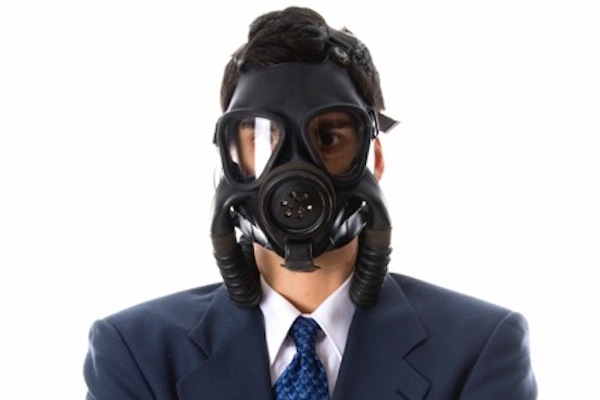
Some of what passes for “sales training” is just plain dangerous. Actually, I would label it: Highly Toxic. It is toxic to sustained improvement, to sustained sales growth, and to the careers of those who recommend, endorse, buy and implement it. It is chosen with the very best of intentions, but it is worse than ineffective. It isn’tharmless; it is poisonous and sometimes deadly.
Got your attention? I hope so. That first paragraph isn’t hyperbole. At some point I hope the “event-based” sales training model dies a long-overdue death. The risks and the damage are real. But for now, sales trainers still offer programs that are almost entirely event-based. And that’s scary.
Event-based sales training follows a pattern: Phase One is minimal preparation on the part of the presenter and the participants. Phase Two is a large-scale event, often multiple days long, involving the whole sales organization at once, often in the same place. In essence, it is a seminar of some kind that may include exercises and activities, based on a proprietary model, approach, method or “secret knowledge.” Phase Three is post-event implementation. Typically it includes very limited access to the trainer or presenter, and some printed materials that the client company is expected to use on their own. Phase Four is the disappointment that follows in a matter of weeks when nothing is different or better.
Dave Stein gets full credit for sparking my thinking around this by applying the term “half life” to sales training. The half life of most sales training is about six weeks. An Equation Research study detailed the failure of most sales training to produce lasting improvement. All evidence of event-based sales training had evaporated in about six weeks. And the study only measured evidence of any positive effect of event-based sales training. The negative effects can last far longer.
- Toxic sales training poisons attitudes: When there are no lasting results toxic sales training kills the belief that sales effectiveness can be improved at all. When experiences with event-based training are disappointing, they convince executives and leaders that nothing can be improved.
- Toxic sales training creates a malignant cycle. The cycle looks like this: The sales organization is not meeting the revenue needs of the organization. Something needs to be done to improve its effectiveness. A vendor is chosen to provide event-based training, often because the vendor is very visible and has a long client list. The event is held. The training is generic, not tied to the company’s sales process. There is no effective follow-up, no individual coaching. Nothing changes. All evidence of the training event is gone within weeks. Afterward, the sales organization isn’t effectively meeting the revenue needs of the organization.
- Toxic sales training radiates a deadly energy. Most even-based sales training is high-energy. It’s based on media, music, and high-energy presenters. Event-based sales training is often noisy and distracting. Unfortunately, event-based sales training draws attention away from the real need, the real work and any real progress. Afterward, the pipeline is carrying no more opportunities, and the opportunities aren’t moving faster or more easily through the pipeline.
- Toxic sales training stunts real growth. Event-based sales training comes with expectations: effectiveness will climb and results will improve. When those things don’t happen, the salespeople are blamed, and painted as unable to leverage an expensive investment in them. Since they’ve been given that great opportunity and not put it to use, they certainly won’t be given any other resources.
This really must stop.
Developing a high performance, highly-effective sales organization is a process. It calls for strong support systems and development of individual salespeople. That means building a sales process tailored to your customers and the relationships they want. And it means coaching salespeople to use that process -- coaching tied to the salesperson’s current opportunities and individual needs. It is a systemic and disciplined process that can produce dramatic results. A two-day training event is no substitute.
What do you think?














